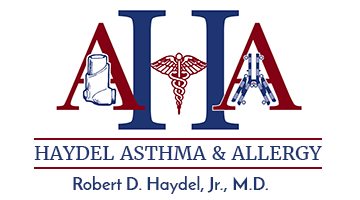 If you’re experiencing nonallergic rhinitis, you typically have symptoms similar to hay fever (allergic rhinitis), such as congestion, sneezing and a runny nose. However, there’s no allergic reaction involved. Nonallergic rhinitis does not cause an itchy nose, throat or eyes; symptoms usually associated with hay fever.
If you’re experiencing nonallergic rhinitis, you typically have symptoms similar to hay fever (allergic rhinitis), such as congestion, sneezing and a runny nose. However, there’s no allergic reaction involved. Nonallergic rhinitis does not cause an itchy nose, throat or eyes; symptoms usually associated with hay fever.
Your doctor will typically perform an allergy skin test or blood tests to determine if your symptoms are due to an allergic response.
Symptoms of nonallergic rhinitis generally come and go year-round, are constant, or may be present for hours or days. You should see a doctor if you experience severe symptoms or side effects from prescribed or over-the-counter medicines to treat your condition. You should also contact your physician if self-care or over-the-counter drugs do not bring you any relief.
Many factors can trigger nonallergic rhinitis, including:
- Changes in the weather
- Viral infection, such as cold or flu
- Certain medications, such as Motrin, antidepressants, oral contraceptives, high blood pressure medicines
- Hormonal changes
- Stress
- Environmental irritants, like dust, smog, strong perfumes
Self-care methods and avoiding triggers may be enough to treat mild cases of nonallergic rhinitis. If your symptoms are more bothersome, your doctor may recommend saline nasal sprays or prescribe oral decongestants, decongestant nasal sprays, antihistamine nasal sprays or corticosteroid nasal sprays.
Over-the-counter antihistamines such as Benadryl and Claritin generally do not relieve nonallergic rhinitis symptoms as effectively as they treat hay fever. In some cases surgical procedures may be an alternative for treating more complex problems, such as a deviated septum.
You can effectively relieve nonallergic rhinitis symptoms at home by rinsing your nasal passages to remove irritants, setting up a humidifier to help loosen mucus and clear stuffiness, carefully and regularly blow your nose if irritants or mucus are present, and drinking plenty of liquids, including water, juice or caffeine-free tea. Caffeinated beverages can cause dehydration and make symptoms worse.
There is really no way you can avoid the underlying conditions causing nonallergic rhinitis. But, if you already have it, getting an effective treatment plan, avoiding your triggers, and not overusing nasal decongestants can bring you some relief and prevent flare-ups.
